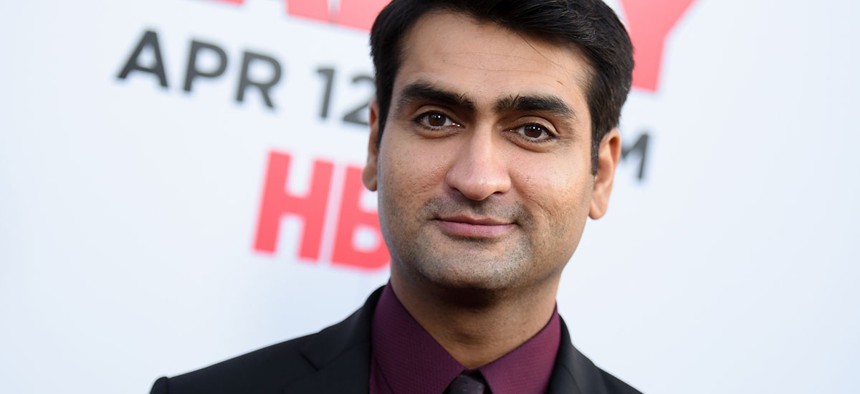A “Silicon Valley” Actor is Terrified by What’s Happening in Silicon Valley

Kumail Nanjiani arrives at the LA Premiere For Season 2 Of "The Silicon Valley" Richard Shotwell/Invision/AP
Tech companies have often cast aside concerns or questions from cast members regarding privacy and other issues.
As some of the world’s biggest tech companies, including Facebook, are grilled this week by the US Congress on alleged Russian interference in the 2016 presidential election, an actor who’s spent much of his recent career learning about Silicon Valley has expressed his fears about the tech industry.
In a series of tweets, Kumail Nanjiani, who plays the role of Dinesh in the HBO show Silicon Valley—a show that often seems uncannily prescient of the actual tech world—recounted his experiences meeting with tech executives as part of his research for the show.
Thread: I know there's a lot of scary stuff in the world rn, but this is something I've been thinking about that I can't get out of my head.
— Kumail Nanjiani (@kumailn) November 1, 2017
Nanjiani went on to explain how tech companies often cast aside concerns or questions from cast members regarding privacy and other issues. Without naming specific people or companies, Nanjiani’s conclusion was that “ZERO consideration seems to be given to the ethical implications of tech.” Not only were they not concerned, said Nanjiani, but it was clear that none of them had seriously even considered these questions, suggesting that few people in their circles were asking them. It was also evident, he added, that tech companies were kicking the can down the road or hoping that things would resolve themselves.
"We're not making it for that reason but the way ppl choose to use it isn't our fault. Safeguard will develop." But tech is moving so fast.
— Kumail Nanjiani (@kumailn) November 1, 2017
A related plotline in Silicon Valley occurred in the fourth season, when Dinesh and his co-workers realized that their video chat app, “PiperChat,” lacked a detailed privacy policy, putting it in violation of a law protecting children under 13 from having their data collected by service providers. The realization meant Dinesh’s company had accumulated more than $25 billion in fines. The episode had aired shortly after Unroll.me, a service that unsubscribed people from unwanted bulk emails, was found to have been selling personal data to companies including Uber. The bigger picture there was that consumers frequently agree to terms of services—usually too lengthy or opaque to understand—when they download and install new products without considering the privacy implications. Companies violating the law have been fined in the past, though for amounts much smaller than $25 billion.
Nanjiani also tied his tweetstorm to the current furor surrounding tech companies and their role in the proliferation of fake news. Tech companies, he said, only ever ask whether they can do something, never “should” they do something, and called their attitude “blasé.”
Tech has the capacity to destroy us. We see the negative effect of social media. & no ethical considerations are going into dev of tech.
— Kumail Nanjiani (@kumailn) November 1, 2017


